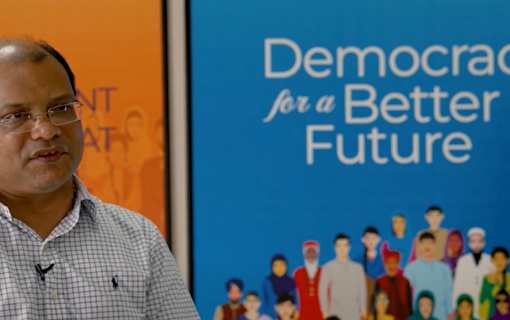Peru: April 1995 Election Assessment
The International Foundation for Electoral Systems (IFES) is a private, non-profit, nonpolitical, and nonpartisan foundation, established in 1987 through a grant from the United States Agency for International Development (USAlD). The IFES mandate is to provide technical services and research support for electoral authorities and other institutions in countries preparing for democratic elections. Since its inception, IFES has worked in over 80 countries. IFES project activities include pre-election technical assessments, on-site technical assistance, election worker trading, election commodities support, voter and civic education, and election observation. IFES research support includes an election resource center, organizing conferences, and publications.
During the month of April, 1995, the Organization of American States (OAS) sent an official International delegation to observe the Peruvian General Elections as requested by President Alberto Fujimori's administration. The OAS delegation included two representatives from IFES, who compiled the information presented in this report. I Such report was preceded by a Pre-Election Technical Assessment conducted by an IFES team and completed in May, 1994, which was used as a precursor of"the 1995 General Elections.
The objective of the two representatives from IFES was to adequately and objectively assess the election day procedures, in order to identify any needed improvements. The findings of the team were also included in the program of the Post-Electoral Conference with officials of Peru's Jurado Nacional Electoral (JNE). The unfolding of the election day process demonstrated areas oftechnical weaknesses and strengths of the JNE, as demonstrated by this report, which were included in the Conference.
The team's objectives were to review the following subjects:
• The legal and administrative aspects of the electoral process;
• voting requirements and procedure;
• electoral register;
• voting identification cards;
• parties and candidates;
• the campaign and the civic education efforts;
• polls and opinion studies;
• polling stations;
• vote tabulation process;
• communication and dissemination of the results
• domestic observers;
• international observers and other forms of cooperation; and
• electoral final results.
Read the Full Report.









